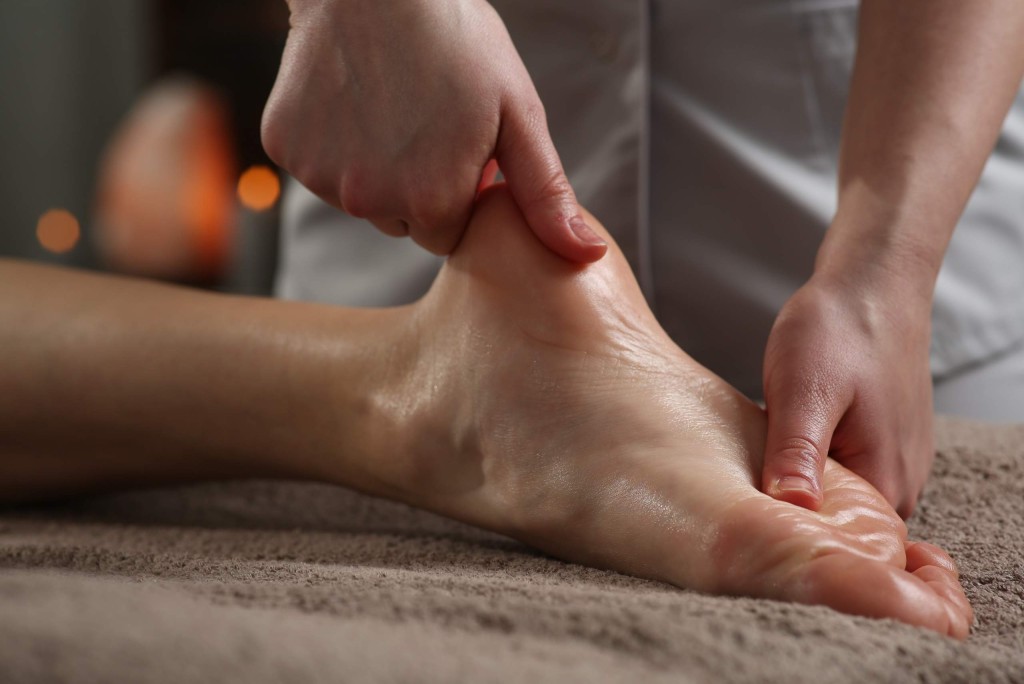
Reflexology Trends to Watch Out For in 2025
Reflexology is continuing to grow increasingly popular, but why are more and more people seeking out this therapy and what are the reflexology trends to watch out for in 2025?
Reflexology is a holistic healing practice that involves applying pressure to specific areas on the feet, hands, and ears. These areas, known as reflex points, correspond to different organs and systems in the body. By stimulating these reflex points, energy can flow freely, promoting balance and well-being. Reflexology is based on the belief that the body is interconnected, and by working on these points, we can support the body's natural healing abilities. In this blog, we're sharing three trends you can expect to see more of this year and being spoken about in health and wellness discussions.
Reflexology in a Clinical Setting
Reflexology has gradually made its way into clinical settings over the years and health professionals are recognising how the therapy can complement conventional treatments. By including reflexology, they've realised a more holistic approach can be offered (which is something that so many of us seem to be prioritising when booking treatments)
Reflexology offers a wide range of benefits for both physical and mental health with regular sessions helping to reduce stress, as well as promoting relaxation. Due to the non-invasive nature of the therapy, it allows patients to find relief from symptoms such as pain and anxiety, without any risk of adverse side effects.
Research is beginning to show that reflexology contributes to shorter recovery times and this is shifting perceptions in a clinical setting. Health professionals are becoming a lot more willing to incorporate reflexology into treatment plans. Hopefully, this trend will allow for a more integrated approach when it comes to seeking the support of a clinical professional, where the focus is treating the person rather than just the symptoms!
Rise of Cranial Reflexology
Cranial reflexology is capturing attention as a specialised form of the therapy which focuses on the head and skull. It involves applying pressure to specific points on the cranium which correspond to a different organ or system. The idea is that by stimulating these pressure points, you can release blockages and restore the body’s natural balance.
This form of reflexology is becoming increasingly popular amongst those looking for relief from conditions such as:
- Complex regional pain syndrome
- Fibromyalgia
- Headaches including migraines
- Neuralgia
- Post-concussion syndrome
- Trauma
- Stroke
- Temporomandibular joint syndrome
- Bruxism
- Alopecia
Professionals are finding that this non-invasive approach can provide significant benefits, it can:
- Encourage a sense of well-being and improve mood
- Relieve physical and emotional stress
- Improve circulation to the head and neck
- Relieve mental and physical strain and improve concentration
- Help headaches, insomnia, bruxism, eyestrain
Focusing on Sleep Health
We need sleep to function, that's a given! And we need sleep to support us both physically and mentally. Sleep regulates your mood, improves memory, and even contributes to maintaining your health and weight. Sleep health is becoming a popular trend as people are looking for ways to improve their health and well-being. Sleep is one of those things that helps massively!
Reflexology acts as a natural solution which relaxes the body and mind, making it easier to fall asleep and into a deep sleep. Findings suggest that foot reflexology provides significant improvements in sleep disturbances. There is a specific point on the base of the foot called the insomnia point. If a person is having sleep problems, this point can be sore when pressed and is one of the best areas to massage to induce sleep.
If you've never tried reflexology before, then we'd love to welcome you to ABWR to give it a go for the first time. Whether you’re dealing with daily stress, sleepless nights, or simply want to bring more relaxation into your life, reflexology offers a natural, soothing way to improve your emotional well-being. You can book your next reflexology session here and start experiencing the benefits for yourself.